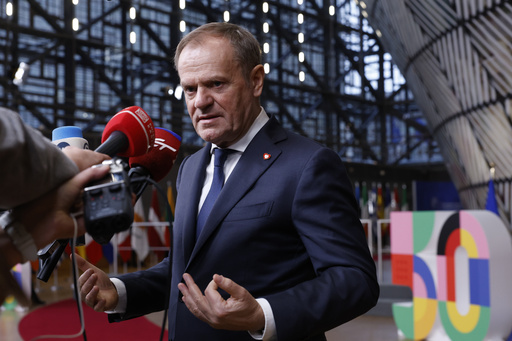
WARSAW, Poland — Hungary has granted political asylum to a Polish opposition figure who is facing corruption allegations, escalating a diplomatic conflict between the two countries. Poland’s administration characterized this move as a “hostile act,” with Prime Minister Donald Tusk expressing his disappointment over Hungarian Prime Minister Viktor Orbán’s choice to harbor an individual accused of defrauding the state of substantial funds.
In response to Hungary’s decision, Poland’s Foreign Ministry announced on Friday that it has recalled its ambassador for “indefinite consultations.” Additionally, the Hungarian ambassador to Poland was summoned to receive a formal protest notice regarding this issue. The controversy revolves around Marcin Romanowski, a former deputy justice minister, which highlights ongoing tensions surrounding issues of rule of law and democracy between Hungary and Poland.
Since taking office last year, Tusk has made it a priority to restore democratic values and combat corruption that has been prevalent during the tenure of the national conservative Law and Justice party. His administration is making efforts to hold accountable certain former officials who allegedly engaged in illegal activities during Law and Justice’s governance from 2015 to 2023.
“I did not anticipate that corrupt politicians seeking to evade justice would find refuge between (Belarusian President Alexander) Lukashenko and Orbán,” Tusk stated, alluding to another recent case involving a Polish judge who sought asylum in Belarus. The Hungarian government, which has aligned itself with Poland’s ruling party, extended political asylum to Romanowski, who is subject to a European arrest warrant.
Through his attorney, Romanowski claims that he is a target of political vengeance by Tusk’s administration. Gergely Gulyás, Orbán’s chief of staff, expressed concerns that Romanowski would not receive a fair trial if he were returned to Poland.
Both countries are members of the European Union, and Poland views Hungary’s actions as “an act contrary to the fundamental principle of loyal cooperation” stipulated in EU treaties. The Polish Foreign Ministry issued a statement, condemning the asylum decision as hostile and contradictory to the essential obligations facing EU member states.
European Commission spokesperson Stefan de Keersmaecker indicated during a Brussels briefing that EU member nations are expected to comply with European arrest warrants, suggesting that Hungary should return Romanowski to Poland to face legal proceedings, though he did not comment on the specific details of the case.
The Polish prosecutor’s office has charged Romanowski with multiple offenses, including participation in a criminal organization, tender manipulation, and the embezzlement of millions.
